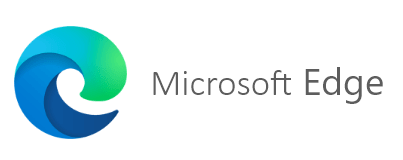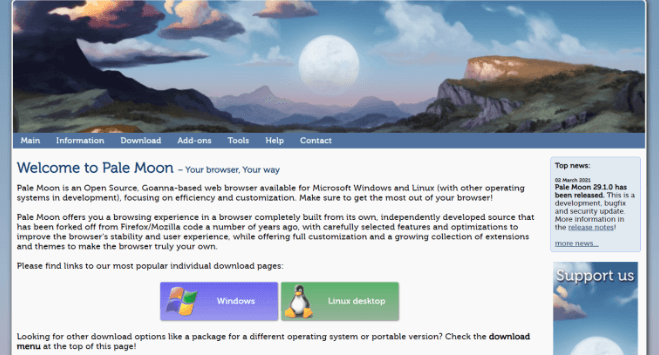Which Browsers Use the Least Memory in 2024 for Cloud Servers?

In the realm of cloud servers, where performance and efficiency are critical, understanding which web browsers use the least memory becomes essential. Whether you prioritise privacy, CPU usage or simply want to maximise memory use of your server's resources, knowing the most RAM-efficient browsers in 2024 is crucial.
Web browsers play a significant role in our digital lives, but they can consume a huge chunk of computer memory. This can affect system performance, particularly in cloud server environments where multiple tasks run concurrently. Managing memory utilisation is important for improving workflow and preventing game lag.
-
-
Web browsers that use the least memory
- Opera: Low impact on resources and unique features
- Mozilla Firefox: Enhanced privacy and efficient resource management
- Microsoft Edge: Resource-friendly browsing experience
- Chromium Browser: A safer and faster browsing experience
- Safari: Apple's optimized browsing experience (limited to the Apple ecosystem)
- Pale Moon: Resource-efficient browsing for modern CPUs
- Brave: Privacy-focused with improved memory management
- Scraping the Barrel: Best Browser for Low-End PC
-
Web browsers that use the least memory
By selecting a good browser that minimises memory usage, you can enhance your browsing experience without sacrificing system resources. This article lists the most RAM-efficient browsers for cloud servers in 2024. We will explore the factors to consider and provide insights into the different browsers that offer optimal RAM efficiency for cloud server usage.
Web browsers that use the least memory
Here is a list of how much ram different web browsers consume. It shows which uses the least ram:
Opera: Low impact on resources and unique features

Opera is a standout web browser known for its minimal impact on system resources and unique features. It offers users a highly customisable browsing experience through add-ons and plugins. Opera's efficient memory usage sets it apart, making it the leading browser in terms of low memory consumption in 2024. This not only reduces strain on your PC but can also significantly improve overall performance, especially on low-end PCs.
Additionally, Opera boasts robust security features, providing reliable protection against malware, phishing attempts, and other online threats. This ensures a safer browsing experience for users compared to popular browsers like Chrome or Firefox.
What makes Opera even more appealing are its distinctive features. Users can customise toolbars, easily bookmark pages with a single click, and navigate with mouse gestures for added convenience. Opera also offers a unique tab-stacking feature, allowing users to organise their tabs more efficiently.
Compatible with Windows, macOS, and mobile devices, Opera provides a seamless browsing experience across multiple platforms. Its combination of less RAM memory usage, customisable features, and strong security make it an excellent choice for users seeking an optimised browsing experience. Whether you have a high-end or low-end PC, Opera stands out as a reliable and resource-efficient browser.
Mozilla Firefox: Enhanced privacy and efficient resource management

Mozilla Firefox is a versatile and free web browser developed by the Mozilla Foundation. It offers a range of features for desktop and mobile users.
Privacy is a key focus for Firefox, providing a secure browsing experience that safeguards users' personal information from potential hackers. This commitment to privacy is especially valuable for individuals concerned about their online security.
Firefox is also highly efficient when it comes to resource management. Its Quantum engine reduces CPU usage by around 30% compared to Chrome, thanks to its multi-process architecture. Each tab operates independently, preventing crashes from affecting the entire browser and ensuring stable performance. Moreover, this architecture allocates memory individually to each tab, limiting how much ram it uses when resources are limited.
Speed is another notable aspect of Firefox. It delivers fast page loading, even on low-end devices with less powerful processors, enabling smooth and efficient browsing.
One of the standout features of Firefox is its open-source nature, allowing users to modify the source code, add new features, and address bugs. This fosters continuous improvement and customisation options for users. Additionally, Firefox is available for free on various operating systems, including Mac OS X, Windows, Linux, iOS, and Android.
Microsoft Edge: Resource-friendly browsing experience

Microsoft Edge, a cross-platform web browser first released in 2015, has gained recognition for its resource-friendly approach. In common tasks like watching videos and scrolling web pages, Microsoft Edge utilizes less CPU than competitors like Mozilla Firefox and Google Chrome, even after using the same Chromium engine as Chrome. As a result, the browsing experience is more efficient, and the strain on system resources is reduced.
Edge also stands out in terms of power efficiency. When scrolling pages over a wireless connection, Edge consumes 31% less power than Chrome and 44% less power than Firefox. This can significantly impact the battery life, making Edge an attractive option for users seeking longer-lasting device performance.
Switching to Edge can be beneficial when you experience issues like laptop fans running loudly due to browser-related activities or slow browsing speeds. Edge's optimized resource usage and power efficiency contribute to a smoother and more enjoyable browsing experience.
Microsoft Edge is compatible with various operating systems, including Windows, iOS, Linux, macOS, and Android.
Chromium Browser: A safer and faster browsing experience

Chromium engine, an open-source web browser project from Google, aims to provide a safer, faster, and more stable browsing experience for users. While Google Chrome draws its source code from Chromium, there are minor differences in features and licensing between the two browsers.
Chromium offers compatibility with many popular browser extensions, providing users with the flexibility to enhance their browsing experience with tools like Todoist, Reply, and HubSpot Sales. Its intuitive user interface simplifies website loading, making browsing as simple as clicking on a link.
Written in C++, Java (for the Android app), JavaScript (for extensions), and Assembly (for low-level GPU programming), Chromium supports all standard web technologies such as HTML5 video, HTML5 audio, HTML5 animations, and HTML5 3D graphics. This ensures that users can seamlessly access and enjoy modern web content.
With its focus on safety, speed, and stability, Chromium serves as a reliable option for users looking for an optimised browsing experience. It is compatible with various operating systems, making it accessible to a multitude of users.
Safari: Apple's optimized browsing experience (limited to the Apple ecosystem)

Safari, developed by Apple, is a browser exclusively available on different Apple gadgets, such as iPhones, iPads, and Mac computers. While Safari performs exceptionally well within the Apple ecosystem, its limited availability on other operating systems places it lower on this list.
Safari is known for its simplicity, speed, and clean interface. It utilises the WebKit rendering engine, which ensures efficient utilisation of computer resources and internet connectivity. The browser engine optimises browsing while keeping the system running at its highest capacity without requiring expensive hardware upgrades.
Safari's user-friendly interface allows users to quickly find and access essential information, saving time and enhancing productivity. It includes features like a history search for easy retrieval of previously visited links and a built-in RSS reader for convenient content consumption.
Although Safari's limited compatibility restricts its reach, it offers a smooth and efficient browsing experience for users within the Apple ecosystem. Safari is available on Mac OS X, iOS, iPad, and Windows operating systems.
Pale Moon: Resource-efficient browsing for modern CPUs

Pale Moon is an excellent choice for users with modern CPUs, specifically multicore processors equal to or above the Intel Pentium 4 or AMD Athlon 64 series. It has minimum system requirements of 300 MB disk space and 256 MB RAM. However, for optimal performance, it is recommended to have at least 1 GB of RAM.
Pale Moon currently supports Linux and Windows operating systems, with ongoing development projects for other operating systems. For Linux users, installation is not necessary; the browser can be downloaded, extracted, and run directly.
Despite its system requirements, Pale Moon's memory usage remains reasonable, and the default browser amount is unlikely to exceed its RAM usage. This makes it a practical option for users seeking a memory-efficient browsing experience.
Brave: Privacy-focused with improved memory management

Brave is a browser that prioritises privacy and offers an innovative feature of rewarding users with tokens for watching ads. With Brave, you can regain control of your data without needing advanced technical skills or becoming a Linux expert.
In its earlier release versions, Brave consumed a significant amount of RAM, similar to Chrome. However, the development team has been diligent in optimising RAM management. As of 2024, Brave utilises considerably less memory than Chrome, significantly improving its resource efficiency.
When it comes to RAM usage, Brave now stands on par with Firefox. If you're facing a dilemma between these two browsers, other factors will need to come into play to make your decision.
Scraping the Barrel: Best Browser for Low-End PC
K-Meleon

With a lightweight interface and excellent performance, K-Meleon is a top choice for low-end PC users. It's free and open-source, utilising the Gecko layout engine to keep memory usage low, averaging around 20 MB per tab.
UR Browser

Offering a macOS version as well, UR Browser prioritises performance and privacy. It eliminates trackers, cookies, and targeted ads, allowing you to choose from different privacy settings for ad blocking and anonymity.
Midori

Available on multiple platforms, including Windows, Linux, macOS, and Android, Midori provides dedicated security and privacy features. It has CPU and RAM usage similar to K-Meleon, making it ideal for low-end PC users.
SeaMonkey

As an application suite, SeaMonkey includes a lightweight web browser that uses the optimised Mozilla base code. It can run on low-spec PCs and offers a restore session feature, enhancing stability for low-end systems.
Lynx

Being the oldest browser with continued support, Lynx uses a text-based system without a graphical user interface (GUI). It's the most lightweight browser on the list, suitable for coders and back-end developers prioritising resource allocation.
Frequently Asked Questions
Which browser uses the least amount of memory?
Opera is widely recognised as one of the browsers that uses the least amount of memory. It is designed to make low memory browser work efficiently even on low-spec systems, making it an excellent choice for resource-conscious users. Opera's optimisation efforts result in minimal strain on your computer's memory resources, allowing for smoother browsing performance.
Does Firefox use less memory than Chrome?
Yes, Firefox generally uses less memory than Chrome. A primary reason for this is Firefox's multi-process architecture, which assigns each tab its own separate process. This means that if a tab crashes, only that particular tab is affected, preventing the entire browser from freezing or crashing. By isolating processes, Firefox ensures better management of RAM and reduces the overall memory footprint.
Is Microsoft Edge more memory-efficient than Firefox and Chrome?
Microsoft Edge has made significant strides in optimising memory usage, making it a competitive option in terms of efficiency. In tasks such as video playback and scrolling web pages, Edge consumes less CPU compared to both Firefox and Chrome.
Additionally, Edge exhibits better power efficiency, leading to improved battery life on laptops and other devices. These optimisations contribute to a smoother browsing experience and reduced consumption of RAM.
What is the advantage of using Chromium-based browsers?
Chromium-based browsers, such as Google Chrome, offer several advantages in terms of resource efficiency. They are built on the Chromium open-source project, which focuses on delivering a safer, faster, and more stable web browsing experience.
Chromium-based browsers utilise advanced memory management techniques to optimise resource usage. Moreover, they provide compatibility with a wide range of extensions, allowing users to enhance their browsing experience while maintaining efficient memory utilisation.
How does Safari compare to other browsers in terms of RAM?
Safari, Apple's native browser, is known for its smooth performance and efficient memory usage within the Apple ecosystem. It utilises the WebKit rendering engine, which optimises resource consumption while delivering high-quality browsing experiences.
Although Safari may not be available on non-Apple devices, it offers excellent RAM management and efficient utilisation of PC resources for users within the ecosystem.
What about memory efficiency in the Brave browser?
Brave is a privacy-focused browser that has gained popularity for its unique features and commitment to user data protection. While Brave initially had higher RAM similar to Chrome in its early release versions, the development team has actively worked on improving its management.
In recent updates, Brave has made significant strides in optimising browser memory usage too, making it a viable option for users seeking both privacy and resource efficiency in their browsing experience.
Are there any other browsers known for their memory efficiency?
Apart from the browsers mentioned above, Pale Moon is worth considering for users with modern CPUs. It is designed to be lightweight & optimised for resource efficiency. It consumes reasonable amounts of memory and can provide a smooth browsing experience even on devices with limited resources.
How can memory-efficient browsers enhance the browsing experience?
Memory-efficient browsers play a crucial role in enhancing the browsing experience by reducing the strain on your computer's resources. With lower memory usage, these browsers can operate more smoothly, with reduced chances of freezing or crashing. They enable faster page loading speeds, better multitasking capabilities, and improved overall system performance. By choosing a memory-efficient browser, users can enjoy a seamless browsing experience while optimising their device's resources.
Does memory usage vary based on the number of tabs open?
Yes, memory usage in web browsers can vary based on the number of tabs open simultaneously. Each open tab consumes memory resources, and having numerous tabs open can significantly impact the overall memory footprint.
It is advisable to manage tab usage effectively by closing unnecessary tabs or utilising features like tab suspension or hibernation provided by certain browsers to reduce memory consumption.
Can I optimise memory usage in my browser?
Yes, there are several ways to optimise RAM in your browser:
Regularly update your browser to benefit from the latest optimisations and improvements in management.
Avoid installing excessive browser extensions, as they can consume additional memory. Consider reviewing and disabling unnecessary extensions to reduce memory overhead.
Practice efficient tab management by closing unused tabs or utilising tab grouping features to keep usage in check.











